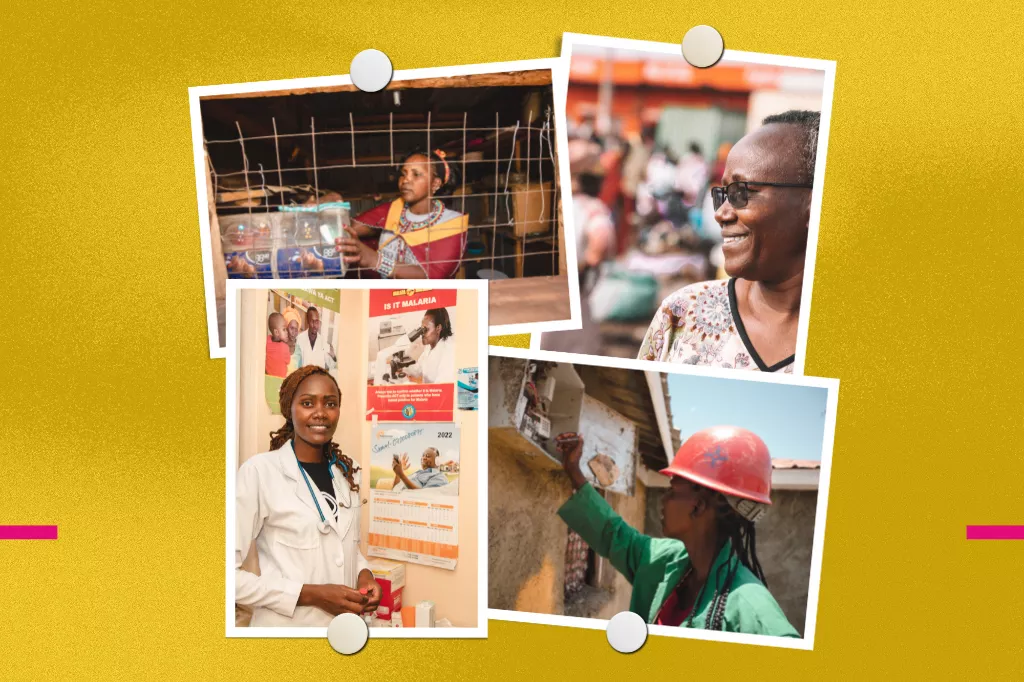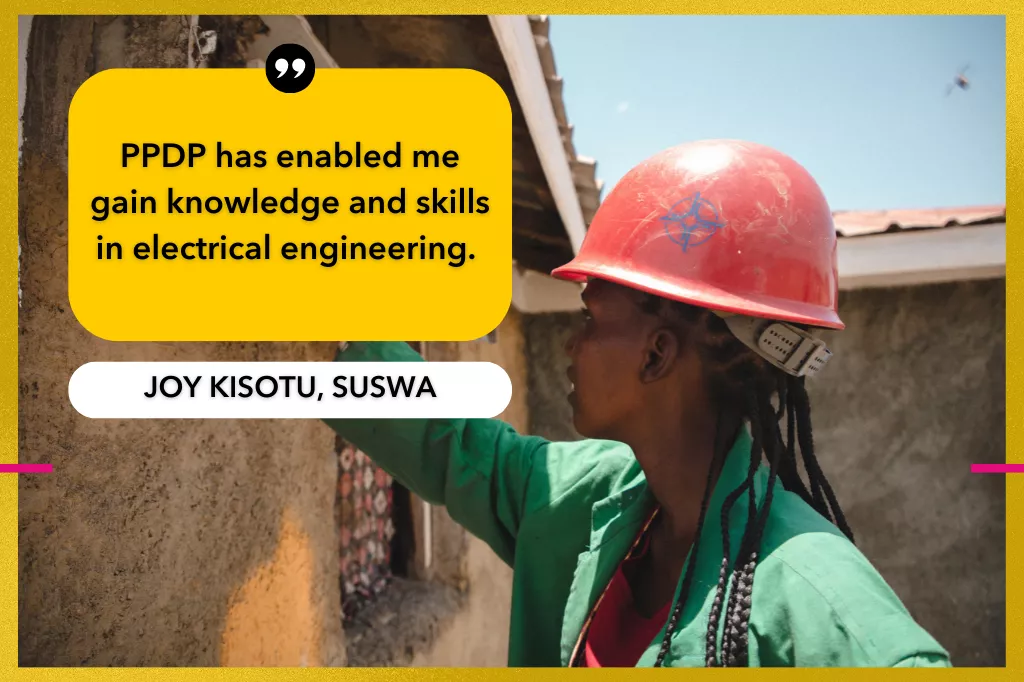Workplace training, mentorship, life skills and employability skills
The project has so far created 489 decent job opportunities.

The inclusive Growth through Decent Work programme has been based on a cooperation between public and private sector actors. The Public-Private Development Partnership model (PPDP) encourages the private sector to proactively create business ventures that also improve conditions for people in poverty.
“Public-private development partnership is an approach that we apply to bring every partner, including the community, whom we are targeting onboard. And everyone is a contributor.” Isaac Muema Kiema, National Programme Coordinator
The project has so far created 489 decent job opportunities provided by private, public partners. Graduates are in self-employment within 12 months of graduation.
This has been done by training, business skills training, empowering communities, functional adult literacy, overcoming gender stereotypes, relevant skills enhancement for job, and livelihood empowerment.
One of the objectives has been to create decent jobs from better skills by vocational training centres. Joy Kisotu is a student that has participated in Narok Vocational pursuing electrical engineering.
“When I was in high school, I loved Physics. I also loved stuff to do with electrical and engineering. In my community, there weren’t many people who could partake in such a course. Through the Inclusive Growth Project, I was supported to undergo the course. I attended the course, got the knowledge, and have since graduated with a certificate. With the certificate, I can apply for electrical engineering jobs in companies.” Joy Kisotu, Electrician

The project has had a wide range of institutions with which it has collaborate and mutually engage with in a bid to improve the conditions of the targeted communities.
“After the donor support, there will be structures in the society where there can be ca continuous dialogue, and a good partnership between the various stakeholders. Private sector creating the job opportunities, providing internships, mentorships, the government who is doing service provision, who of course wants to be relevant for their community and then you have the community who is the foundation of the entire program.” Paula Kermfos, Embassy of Sweden Nairobi, Kenya
Andra nyheter

The power of people powered Public-Private Partnerships
Public–Private Partnerships (PPPs) are often discussed in terms of roads, power plants, housing, and other large infrastructure projects. But as discussed on the People’s Partnership Podcast, PPPs are...

ForumCiv’s social media accounts labelled as “extremist materials” in Belarus
Important message to our Belarusian followers. Any interaction with our content can now lead to legal consequences in Belarus. Please read the information below and take the necessary precautions for...

ForumCiv enters new strategic partnership
ForumCiv is proud to announce a new three-year strategic partnership with Sida, totalling SEK 137 million.